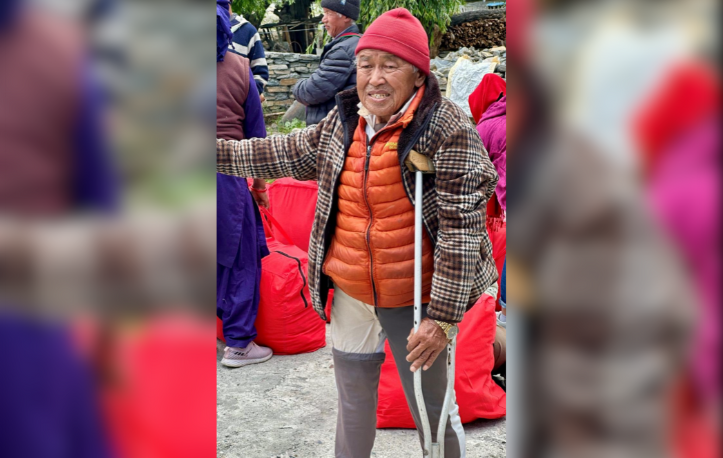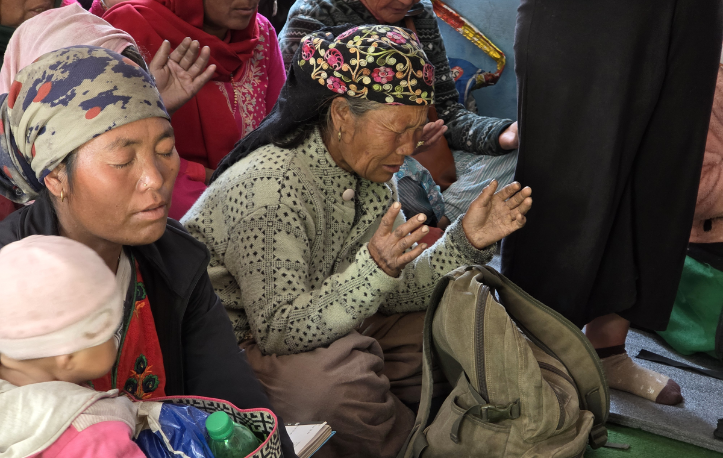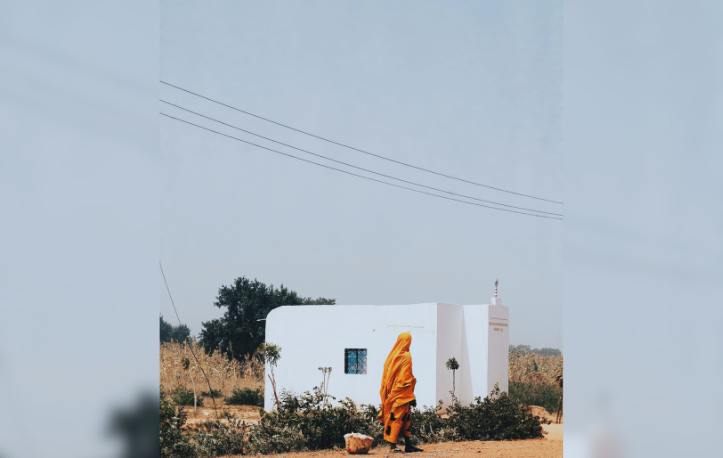Gabriel (not his real name) is in constant motion. Besides leading a church in Cuba and sharing the gospel at every opportunity, he is a prolific church planter and Bible distributor. He also trains Christian leaders throughout the island nation of about 11 million people to reach their communities for Christ, something strongly opposed by the communist government that has controlled Cuba since the 1950s.
Gabriel takes seriously Jesus’ command to ‘go’. He and his fellow workers visit unreached communities, find ‘people of peace’ — those willing to invite them into their homes — and ask those people to gather family and friends to talk with them about the Bible. Gabriel never knows what kind of people will gather to hear God’s Word.
“In a house where there are witches,” he said, “where you are reading the Bible and beside you there is an idol … they are not Christians, but they let you in because God is working in them. In their [own] homes, with their community and network of friends and family, that is the light in the darkness — the church out in the world.”
The objective of their ministry, Gabriel said, is to take God’s Word to people and have them be confronted by it. Rather than merely teaching God’s commandments, they focus on Jesus’ teaching of obedience to the commandments.
“When we have a biblical text,” he said, “one of the questions we ask is, ‘What are you going to do to obey?’ We ask, ‘What are you going to stop doing, and what are you going to start doing?’ It is incredible to see how people change.”
In his 20 years of gospel ministry in Cuba, where most people are atheists and many engage in superstitious and spiritist practices, Gabriel has seen lives transformed day after day, year after year, through encounters with the Word of God.
“Here there is no hope,” he said, referring to economic difficulties and atheistic communist government policies that have left many people destitute, without jobs or resources. He said a lot of Cubans, lacking motivation and seeing no future in Cuba, fix their hopes on eventually leaving the country.
“In the middle of this context,” he said, “we … tell them there is hope in God, there is salvation in God.” Bible distributions are a way of feeding that hope, and Gabriel well recalls how life-changing it can be.
Calling on Jesus
As a boy growing up in the countryside far from a hospital or even a local doctor, Gabriel understood hopelessness. Afflicted from age five with severe asthma, he lay in the tiny, dirt-floor house he shared with his mother and grandparents, struggling to breathe. “Everyone in the neighbourhood thought that I was going to die,” he said.
His grandmother was steeped in spiritism and the occult, as were many of their neighbours, but one of her family members had come to faith in Christ. Long before Gabriel was born, this relative had taught Gabriel’s mother about the Christian faith and told her to ask Jesus Christ for help if she ever needed it.
“One night, when I was dying of asthma, my mum raised up her hands to heaven and said, ‘Jesus Christ, help us!’” Gabriel recalled. “The presence of God came to our room … and I started to feel relief.” This occurred night after night, and six months later they began attending services at a church they found a few kilometres away.
Gabriel now considers it natural that he grew up passionate for God after experiencing His power. “Imagine a God who heals you every night,” he said, “a God who comes to your life, comes to your house, starts to transform everything.” His whole family came to faith in Christ through this miracle. They were baptised, and their home soon became the first church in the community.
While serving as a leader of his youth group at age 16, Gabriel had another encounter with God. He heard a sermon about David being a man after God’s own heart and was moved to dedicate his life to being a church planter. Upon completing some ministry training a year later, Gabriel entered his first mission field, a town where there were 14 occult temples for the small population of 200 households. “Everyone there was an alcoholic,” Gabriel said. “There was adultery everywhere, sex everywhere. It was a hard town.”
The town’s spiritual darkness was enough to drive Gabriel to despair. So amid his feelings of dejection, he went home for a reprieve. While there, he read a magazine article that changed his heart. The article, about another missionary in a difficult field, inspired him with a single thought: God did not require his success, but his faithfulness.
Gabriel returned to the field and began to see changes. “God is the one working,” he said. “God is the one who transforms. My job is to go wherever he is guiding me every day.” As he continued his ministry work, Gabriel noticed that people were coming to him to hear the message of salvation. Soon, the growing number of believers prompted him to find land for a church.
The Missing Piece
As the church was becoming established in that first town, Gabriel continued to go where God led him, taking the gospel to other communities. He estimates that between the years 2009 and 2013, he and the other Christian workers witnessed a thousand confessions of faith. But then, as quickly as it had begun, the growth came to a stop.
Gabriel became frustrated, noticing that lasting transformations were not occurring in the lives of the new believers. When he shared his frustration with a friend, the friend immediately recognised the problem.
“You have evangelism,” he said, “but you do not have discipleship.” He recommended that Gabriel receive training to help fill in the missing component.
“He gave us the first training for making disciples in Cuba,” Gabriel said. “The discipleship we often do says, ‘Come to the church and here we will disciple you.’ But this approach changes discipleship to be like Jesus, who says, ‘Go’.”
The discipleship training led to a movement that has since crossed denominational barriers and equipped thousands of Christian leaders in Cuba. The 70 leaders who received training that first year went on to start more than 500 Bible discovery groups in the homes of interested nonbelievers in 2014. Since then, the number of groups has ballooned to 15,000, each group established after a Bible was placed into the hands of someone desperate for the hope that is so scarce in Cuba. About 2,500 house churches have grown out of these Bible discovery groups.
The Best Investment
As evidence of the country’s hunger for truth, Gabriel shared a photograph from a recent Bible distribution in Cuba’s capital, Havana. In the photo, about a dozen people are reaching for a Bible; a sense of urgency and excitement is etched on their faces and seen in the physical tension of their outstretched hands. “It is incredible to see the hunger for God that is in this country,” he said.
Gabriel usually receives a few thousand Bibles at a time for distribution, and he estimates that his network has distributed a few hundred thousand Bibles so far. “Even so, there is need of more,” he said. “People are [excited] to get Bibles. At this point, the only thing I need is more Bibles. If you ask me how many Bibles I need, I say one million, [but] not even one million Bibles is enough.”
He said he and other Christian workers have followed up with about 80% of the people who have received Bibles, and around half have joined a Bible discovery group. He is confident that even those who do not join the groups experience spiritual transformation by reading God’s Word on their own.
Gabriel said he believes he was born for the work of distributing Bibles around the island nation, and he has a big dream for his ministry work. “I would like to put a Bible in each home in Cuba,” he said. “That is my goal. That is my heart.”
But Bibles are not easy to come by in Cuba. While some churches are able to purchase Bibles through the government-authorised Council of Churches, the Bibles are expensive, earmarked for registered churches and still not available in large numbers. One of those Bibles can cost an average worker more than a third of his or her monthly income.
In some churches, Bibles are so rare that members share one or two Bibles, parcelling them out in books and chapters so individuals can hand-copy passages for study. In other cases, an old family Bible might be rebound and repaired repeatedly so the church can continue to use it.
“When you have … hunger problems and people with small budgets, the majority would not have access to a Bible because they cannot buy it,” Gabriel explained. “That is why I am grateful to all the donors of Bibles in the world. Everyone who gives a Bible, I assure you they are arriving at the right place. The Bible is arriving at a home where there is darkness, and you are changing lives. You are transforming a marriage, you are freeing kids [from] growing up without a dad, you are helping an alcoholic or a witch to change. The best investment that we can do in this moment is to invest in Bibles.”
No Burned Bridges
The bold efforts of Gabriel’s network to distribute Bibles and disciple new believers have not gone unnoticed. He said operatives of the religious affairs bureau often attend worship services to make sure the message is not political or critical of the government’s Marxist ideology. The constant surveillance, he said, can take a psychological toll on those in Christian ministry.
Gabriel said he has received threats and warnings throughout his ministry career and has also endured the scepticism and opposition of many Cubans with atheistic worldviews. But he perseveres because he is confident that no one is beyond hope of salvation.
He recalled one prison official who chased him away and threatened him when he came to the prison seeking permission to conduct worship services there. Later, he said, that official’s heart softened and the prison invited chaplains to come and preach. Members of the official’s family began turning to Christ, and Gabriel’s relationship with the man has continued to grow. “You can’t ever burn a bridge,” Gabriel said. “Do not reject anyone, because the one who is not with you today may be with you tomorrow. Never, never repay anyone evil for evil. There are people who have been my enemy and have turned to the Lord.”
Rather than wasting his energy fretting over the opposition, Gabriel feels an urgency to keep going out and giving people the Word of God.




Submit a Prayer